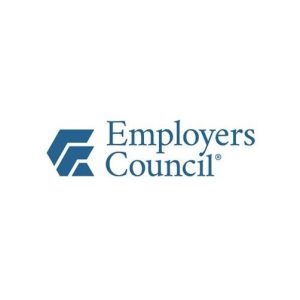Among the regulations and compliance requirements imposed on the banking industry, there is one that may fall below the radar: Affirmative Action (AA). As stated by the Office of Federal Contract Compliance Programs (OFCCP), “Financial institutions with federal share and deposit insurance are considered to be government contractors” and required to comply with Affirmative Action. A quick review of AA may be helpful.
Created by Executive Order 11246 in 1973, AA is intended to “ensure equal employment opportunities for applicants and employees” and combat employment discrimination based on protected class (age, disability, gender, race, religion, sex, etc.); amended in 1974 by VEVRAA to include veterans and active military personnel, AA is housed within the U.S. Department of Labor with compliance administered by the OFCCP.
AA compliance requires a written affirmative action plan (AAP) to address the flow of applicants and employees through an organization’s processes from recruiting to hiring, selection for advancement, pay practices and termination. Extensive tracking and annual reporting must be completed, driven by statistical analyses of internal staffing and comparisons with external community demographics. Employers must review their data to identify statistical gaps and discrepancies, then devise and implement strategies to address them. Non‑compliance may lead to invasive audits and monitoring.
The ultimate objective of AA is to eliminate barriers to equal opportunity in workplaces with statistically meaningful reflection of community demographics in workplace participation.
So, what does DEI (diversity, equity, inclusion) strategy have to do with AA?
To be clear, DEI is not currently mandated by law and is not the same as AA compliance. Unlike AA, DEI does not define specific classes of people and is intended to provide universal benefits. Recently, DEI has been critiqued as politically motivated or socially correct; when done properly it can instead be a powerful, human-focused business strategy. At Employers Council, we believe employers can incorporate DEI in their business strategy to obtain improved results by attracting, engaging and retaining people with the skills, abilities and potential needed to implement business strategies and achieve desired results.
Banks may wish to consider a broader approach to the challenges of AA compliance with strategies that also improve overall business outcomes. Voluntary efforts to enhance workplace diversity, equity and inclusion offer opportunities to simultaneously leverage the impact of efforts designed to address AA requirements. Importantly, unlike AA, improved business results are the measure of success of any DEI efforts.
An underlying concept of DEI is that every human being is unique, has potential to contribute, and can flourish when offered opportunities that match their strengths along with consistent employer support.
DEI challenges employers to look beyond “business as usual” tactics to identify talent that may be overlooked due to presumptions, biases, stereotypes, process inertia and lack of imagination. Employers with a DEI focus can tap into a wider pool of talent and expand the capabilities of their workforce.
Historically, for example, neurodiverse people have not fared well in standard employment hiring practices; they often lack social skills that are deemed of value by traditional applicant screening criteria. As such, they have frequently been passed over for hiring and promotion and suffered high unemployment. With an eye on emerging business needs, and labor shortages, some employers have chosen to focus on the skills needed to successfully complete job tasks and have revised age‑old recruiting and hiring practices to allow for neurodiverse applicants. A research study by the High Lantern Group shows that results for many employers have been outstanding. Attributes that were previously considered liabilities (e.g. hyper-focus on one task as opposed to multi-tasking, lack of awareness for interpersonal social cues, etc.), often enable neurodiverse people to more effectively complete repetitive job tasks versus previous traditional hires, and employers enjoy improved outcomes.
An employer who focuses on the skills and attributes that truly matter to achieve business results, and changes attitudes and processes that hinder employee success, is acting with a DEI focus. This can also drive results for an AA strategy; when a broader pool of people is invited to contribute and supported to be successful in the workplace, advancement opportunities open to a more diverse pool.
Employees who feel supported and respected by an inclusive workplace are more likely to enhance their participation and contribute voluntary effort in the workplace. Employers prize voluntary effort to meet business results and often complain when this is absent — many employees may do just the bare minimum to complete their job tasks.
These efforts impact employer reputation, as well; and in the world of social media and corporate transparency, this has meaningful impact. Employers who cultivate a reputation as an inclusive, respectful workplace for all people, regardless of background, are more likely to attract more diverse applicants for vacant jobs. This DEI outcome supports AA compliance; although AA compliance does not require employers to address community reputation, an employer with the reputation of intolerance for employees with diverse needs is less likely to attract diverse applicants and retain a diverse candidate pool of employees to promote that supports AA objectives.
Put simply, employers with a DEI focus on their internal activities and workplace culture, drafted to achieve business objectives, can effectively reinforce efforts to achieve AA objectives.
In our work at Employers Council, our teams of professionals assist banking and financial institutions navigate the complexities and opportunities of both DEI business strategy development and AA compliance.
Employers Council has been a trusted and cost-effective partner for organizations since 1939. We specialize in DEI initiatives, affirmative action compliance and comprehensive HR consulting and employment law services. Our dedicated team of attorneys and HR consultants proudly supports over 4,000 employers. For more information on how we can assist your organization, visit www.employerscouncil.org or call (800) 884-1328.









